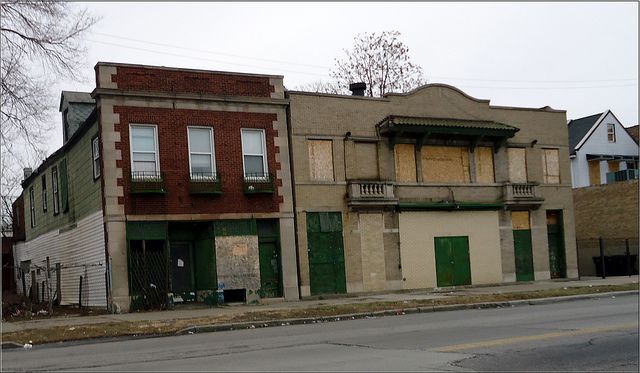Chicago has a lot of vacant buildings in foreclosure. As is the case in many U.S. cities, a lot of those foreclosures are backed by Fannie Mae and Freddie Mac mortgages — a fact that just became a big problem for the Windy City.
In November 2011, Chicago passed a law that requires owners of vacant buildings — or, if they’ve been foreclosed on, the mortgage backers — to register the building, pay a $500 fee and keep up with city-mandated property standards. But a judge ruled Friday that Fannie Mae and Freddie Mac don’t have to follow the city’s ordinance.
This could have implications across the nation, as the Chicago Tribune notes:
More than 1,000 municipalities around the country, by one count, have laws that require the registration and maintenance of vacant properties. The court’s decision could prompt the FHFA to file suit against other cities’ local laws, or municipalities themselves may have to retool their own ordinances if they decide they are no more enforceable than Chicago’s.
Fannie and Freddie have their own standards which are, unsurprisingly, not as demanding as Chicago’s. But that did not stop Judge Thomas Durkin from siding with the corporations on the law, which charges violators between $500 and $1,000 for each infraction. Between June 1, 2012, and May 21 of this year, Chicago collected $2.8 million in registration fees, according to the Tribune.
Vacant, foreclosed homes and the problems surrounding them aren’t going anywhere. Chicago’s Anti-Eviction Campaign, which earned a lengthy profile in the New York Times in May, takes it upon itself to fix up foreclosed houses and move in families in need. But the risk there is that families could be uprooted at the drop of a hat.
“It’s not stable housing,” Linda Couch, senior vice president for policy and research at the National Low Income Housing Coalition, told me in June. So while the Anti-Eviction Campaign represents a temporary and progressive attempt to use foreclosed homes, its rehabs and move-ins aren’t permanent.
Richmond, Calif., where nearly half the city’s residential mortgage holders are in trouble, is trying to stave off foreclosures and keep people in their homes by buying up mortgages. In April, the city approved a plan to use eminent domain to buy loans, which it then can restructure to help keep families from foreclosure. Mortgage holders sued the city of Richmond earlier this month to stop the city from seizing their homes.
Still, Richmond could be a pioneer. In an interview with Mayor Gayle McLaughlin earlier this month, Democracy Now mentioned that New York City and Newark, N.J. are advancing similar laws.
I don’t know what the political appetite is for such laws in Chicago, or if it’s even remotely possible. But if lawmakers were willing to institute some regulations on vacant foreclosed homes — which, many argue, lead to unchecked crime in empty, depopulated neighborhoods — perhaps they’re ready to play hardball and go the eminent domain route.
The Equity Factor is made possible with the support of the Surdna Foundation.

Bill Bradley is a writer and reporter living in Brooklyn. His work has appeared in Deadspin, GQ, and Vanity Fair, among others.
















